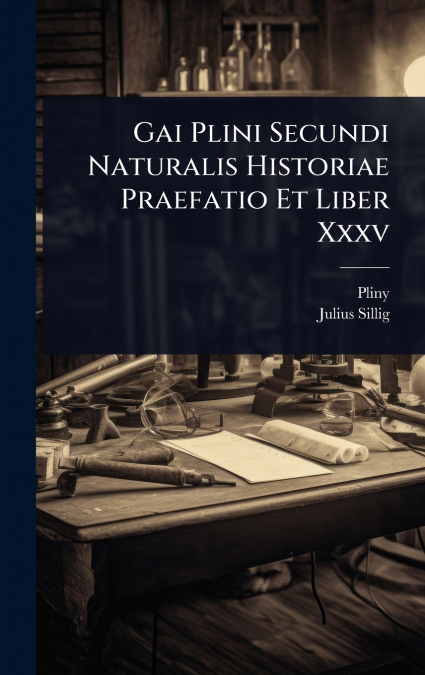
Julius Sillig / Pliny (the Elder.)
Gai Plini Secundi Naturalis Historiae Praefatio Et Liber Xxxv è una riedizione critica dell’opera di Plinio il Vecchio, curata da Julius Sillig. Questo volume si concentra sulla prefazione e il libro XXXV della 'Naturalis Historia', offrendo un’analisi approfondita delle conoscenze scientifiche e artistiche dell’epoca romana. Plinio, attraverso la sua enciclopedica opera, presenta una vasta gamma di argomenti, dalla geografia all’arte, dalla medicina alla botanica, fornendo un quadro dettagliato del mondo naturale e culturale del suo tempo.Questa edizione, meticolosamente curata, è essenziale per gli studiosi di storia romana, storia dell’arte e storia della scienza, offrendo un accesso diretto alle fonti primarie e alle interpretazioni erudite. La prefazione introduce il lettore al progetto ambizioso di Plinio, mentre il libro XXXV si concentra sulle arti pittoriche e scultoree, fornendo preziose informazioni sulle tecniche artistiche e sugli artisti dell’antichità .This work has been selected by scholars as being culturally important, and is part of the knowledge base of civilization as we know it. This work was reproduced from the original artifact, and remains as true to the original work as possible. Therefore, you will see the original copyright references, library stamps (as most of these works have been housed in our most important libraries around the world), and other notations in the work.This work is in the public domain in the United States of America, and possibly other nations. Within the United States, you may freely copy and distribute this work, as no entity (individual or corporate) has a copyright on the body of the work.As a reproduction of a historical artifact, this work may contain missing or blurred pages, poor pictures, errant marks, etc. Scholars believe, and we concur, that this work is important enough to be preserved, reproduced, and made generally available to the public. We appreciate your support of the preservation process, and thank you for being an important part of keeping this knowledge alive and relevant.